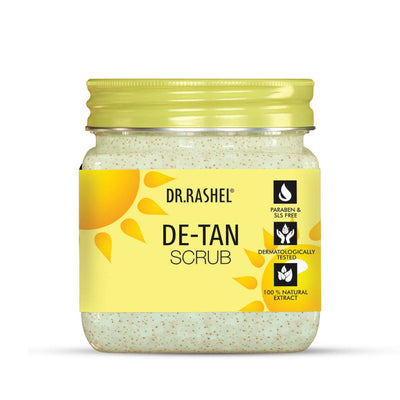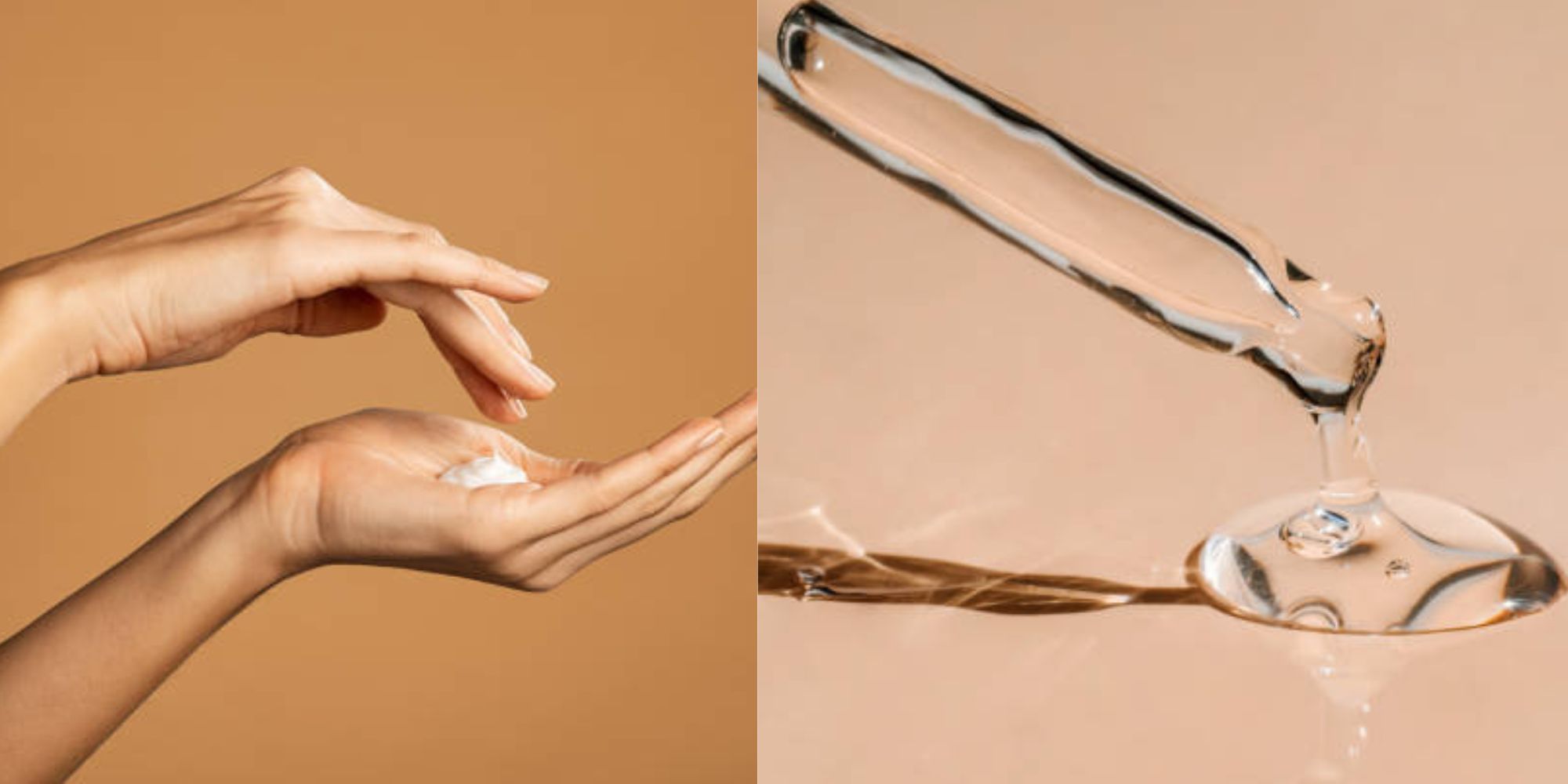
Content Outline
- What is Serum?
- What is Moisturizer?
- Difference Between Serum & Moisturizer
- Serum Vs Moisturizer: How to choose the right one for your skin needs?
- Conclusion
- FAQs
When it comes to skincare, it’s confusing to choose between serum or moisturizer. Both serums and moisturizers are equally important in the skincare regime to prevent clogged pores, dissolves whiteheads, brighten skin tone. However, Serum and Moisturizer has it’s own unique qualities. To know more, continue reading this blog to understand about the difference between serum and moisturizer and how it compliments each other.
What is Serum?
A serum is a lightweight skincare product containing active ingredients that address skin issues. They arrive in a bottle with a dropper. Each serum has been customized to particular skin types and issues. They are effective against wrinkles, fine lines, dark spots, hyperpigmentation, and dryness. Serums include high concentrations of antioxidants, peptides, and vitamins, which enter deeply into the pores and skin, providing additional moisture.
Key Advantages of Serums
- Lightweight: Serums have a gentle, liquid viscosity that makes them easier to absorb.
- Potent: They include high levels of active ingredients such as antioxidants, peptides, and minerals.
Serums are developed to address specific issues including aging, pigmentation, and moisture.
What is Moisturizer?
A moisturizer is a thicker skin care product that allows moisture to enter the pores and helps to moisturize. It forms a protective barrier on the skin's surface to prevent moisture loss while keeping the pores and skin soft and clean. Moisturizers come in a variety of forms, including creams, lotions, and gels, to cater to different types of pores and skin.
Key Points about Moisturizers
- Hydrating: Moisturizers are used to add and maintain moisture within the pores and skin.
- Barrier Protection: They help to protect the pores and skin from environmental damage.
- Variety: Available in different formulations for each pores and skin sorts, from oily to dry.
Difference Between Serum & Moisturizer
While both serums and moisturizers are necessary for a healthy skin care, they have exceptional functions and works differently on the skin.
|
Feature |
Serum |
Moisturizer |
|
Texture |
Lightweight, watery |
Thick, creamy |
|
Purpose |
Deep pores & Skin |
Deep pores & Skin |
|
Target |
Hydrate and shield the skin |
Deep penetration |
|
Usage |
Applied before moisturizer |
Applied after serum |
|
Active Ingredients |
High in energetic elements |
Balanced components for hydration and safety |
|
Best For |
Targeted remedy (wrinkles, dark spots) |
Overall pores and skin hydration and moisture retention |
Serum Vs Moisturizer: How to Choose the Right One for Your Skin Needs?
The choice between a serum and a moisturizer depends on the type of skin you have and the specific concerns you want addressed.
- For Dry skin: Both serum and moisturizer can be helpful. A hydrating serum containing ingredients such as hyaluronic acid can provide deep moisture, whilst a heavy moisturizer will seal in moisture.
- For Oily skin: Choose a lightweight, non-comedogenic serum to avoid blocking pores. To maintain balance, apply a gel-based or oil-free moisturizer after cleansing.
- For Combination Skin: Use a serum to target specific areas, such as a moisturizing serum for dry patches, and a lightweight moisturizer to keep the skin balanced.
- For Specific Concerns: If you're looking to treat wrinkles, dark spots, or dullness, a serum containing active ingredients like retinol, vitamin C, or niacinamide may be particularly effective.
Conclusion
Between choosing one skincare product, the winner is obviously based on your skin's individual needs. Serums and moisturizers are both valuable additions to any skincare regimen, each offering unique benefits. insight into what each product performs allows you to have an insight of their preferences based on skin type and problems. Whether you decide to use a serum, a moisturizer, or both, consistency and precise application are essential for achieving healthy, bright skin.
By far, you must have understood the difference between serum or moisturizer (or both!) are right for your skin, resulting in a healthier, more luminous complexion.
FAQ’s
Is serum better than moisturizer?
Serums aren't always better than moisturizers; they serve distinct purposes. Serums focus on skin troubles with excessive concentrations of active components, while moisturizers focus on hydrating and protecting the skin. Using both may be beneficial.
Can I use a serum as a moisturizer?
Serums aren't designed to replace moisturizers. While they offer centered treatment, they lack the hydrating and protective characteristics of moisturizers. It's best to use each for itself in a skin care routine.
Can I skip serum and use moisturizer?
Yes, you can skip the serum in case your problem is hydration. Moisturizers are important for keeping your skin hydrated and protected, however serums offer extra benefits for particular skin problems.
Which comes first, serum or moisturizer?
Apply serum first due to the fact it's lightweight elements need to penetrate the pores deeply. Follow with a moisturizer to lock in the serum's active elements and provide hydration.
Can I use serum after moisturizer?
No, serum has to be used before moisturizer to make certain the active components can correctly penetrate the pores and skin. Applying serum after moisturizer would give you this deep absorption.
Can I use both serum and moisturizer in my skincare routine?
Yes, the usage of both is useful. Apply the serum first to target particular issues, followed by a moisturizer to seal in the serum’s benefits and offer hydration. This gives maximum skin care benefits.
Can I mix serum with moisturizer?
It is usually advised not to mix serum with moisturizer because it can dilute the serum's effectiveness. For optimal results, apply the serum first, followed by the moisturizer.









